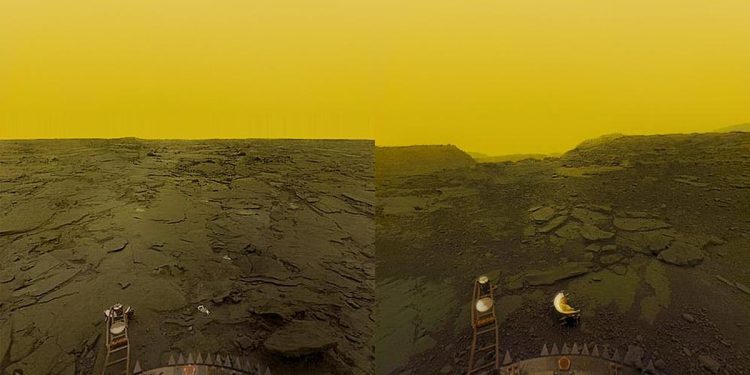When it comes to discussing extreme environments, Venus often tops the list as a prime example of a celestial “hellscape.” With surface temperatures hot enough to melt lead and an atmosphere rich in sulfuric acid, it’s hard to imagine life thriving on this hostile planet. But scientists aren’t giving up on Venus just yet. In fact, new research suggests that some of life’s essential building blocks might be able to endure even in Venus’ acidic atmosphere. Could this mean that life, as we know it—or some form of it—might be possible in the clouds of our closest planetary neighbor?
A Surprising Candidate for Habitability
Venus’ surface is as inhospitable as they come, but its atmosphere tells a different story. With layers that contain Earth-like temperatures and pressures, scientists have long been curious whether life could survive in Venus’ upper atmosphere. Though a previous claim about the discovery of phosphine (a potential biomarker) was later debunked, the search for habitability hasn’t stopped.
So why Venus? For one, it’s much more accessible than distant exoplanets. We have the Japanese Akatsuki spacecraft already orbiting Venus, and there are three more missions on the horizon from NASA and ESA in the coming decade. With Venus being so close to Earth, it offers a unique laboratory for studying how life could potentially exist in hostile environments.
New Research Explores Life’s Limits
A recent study conducted by researchers from the University of Chicago is shedding light on whether some of life’s fundamental components could survive in Venus-like conditions. Specifically, they investigated how simple lipids—key building blocks of cells—behave when exposed to sulfuric acid. These experiments sought to answer two critical questions: can lipids resist decomposition by sulfuric acid, and can they form stable structures similar to those found in living cells?
The researchers found that some lipids can indeed withstand sulfuric acid, forming complex structures that resemble cell membranes. These findings hint that some aspects of life’s chemistry might be more adaptable than we previously thought.
Life Beyond Water
One of the study’s most groundbreaking implications is that life might not necessarily require water as its primary solvent. On Earth, water is essential for its ability to form hydrogen bonds and maintain cellular stability. But on Venus, water is scarce, and sulfuric acid takes center stage. This study suggests that in environments like Venus’, life could potentially rely on sulfuric acid instead of water.
Could this discovery have broader implications beyond Venus? Absolutely. The researchers point out that sulfuric acid could serve as a solvent on exoplanets with extreme conditions, offering new avenues for astrobiological exploration.
What’s Next?
Although this study doesn’t prove that life exists in Venus’ atmosphere, it adds a significant piece to the puzzle. By demonstrating that lipid membranes can survive and even thrive in sulfuric acid, the researchers have opened new doors for understanding how life might persist in the harshest environments imaginable. As we continue to explore Venus, and potentially other planets with extreme conditions, this research could redefine our understanding of habitability throughout the universe.
In a field like astrobiology, where many questions remain unanswered, every discovery moves us one step closer to understanding life’s true potential. And Venus, despite its reputation as a toxic wasteland, might just hold some of the answers.











